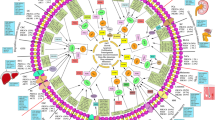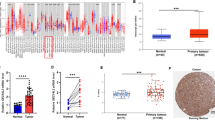Abstract
Background and Objective: Signal transducer and activator of transcription (STAT) 3, a member of the STAT family of transcription factors in the Janus kinase (JAK)/STAT signaling pathway, is involved in cell proliferation and apoptosis. STAT3 is activated through phosphorylation (p-STAT3) and is highly expressed in many malignancies. The aims of the present study were to evaluate STAT3 activation (p-STAT3 protein levels) in lung adenocarcinoma and squamous cell carcinoma, and to investigate its correlation with clinicopathologic features of these malignancies.
Methods: Expression of p-STAT3 was detected by immunohistochemistry in tissue from 127 lung carcinomas (100 adenocarcinomas and 27 squamous cell carcinomas) and 56 normal lungs. Genomic DNA was extracted from frozen patient tissue samples, and key epidermal growth factor receptor (EGFR) mutation sites in exons 18 through 21 of the EGFR gene were amplified and sequenced.
Results: On the basis of the intensity and percentage of p-STAT3 immunoreactivity, samples were divided into negative and positive p-STAT3 expression groups. 103 of these 183 samples (56.3%) showed immunoreactivity for p-STAT3, and this frequency was significantly increased in carcinoma tissue compared with normal tissue (p = 0.001). Positive p-STAT3 expression was detected in 82 of the 127 carcinomas (64.6%) but in only 21 of the 56 normal tissue samples (37.5%). Among the 127 cases of non-small cell lung cancer, p-STAT3 immunoreactivity was significantly correlated with sex (p = 0.004), smoking history (p = 0.006), EGFR mutation status (p = 0.003), clinical stage (p = 0.034), and lymph node metastasis (p = 0.009).
Conclusion: Our results suggest that p-STAT3 is an important factor during carcinogenesis and metastasis of lung carcinoma, and its relationship to EGFR mutation status may provide potential targeting opportunities in future therapies.





Similar content being viewed by others
References
Ettinger DS, Akerley W, Bepler G, et al. Non-small cell lung cancer. J Natl Compr Canc Netw 2010 Jul; 8(7): 740–801
Yarden Y, Sliwkowski MX. Untangling the ErbB signalling network. Nat Rev Mol Cell Biol 2001 Feb; 2(2): 127–37
Cortas T, Eisenberg R, Fu P, et al. Activation state EGFR and STAT-3 as prognostic markers in resected non-small cell lung cancer. Lung Cancer 2007 Mar; 55(3): 349–55
Lynch TJ, Bell DW, Sordella R, et al. Activating mutations in the epidermal growth factor receptor underlying responsiveness of non-small-cell lung cancer to gefitinib. N Engl J Med 2004 May 20; 350(21): 2129–39
Paez JG, Janne PA, Lee JC, et al. EGFR mutations in lung cancer: correlation with clinical response to gefitinib therapy. Science 2004 Jun 4; 304(5676): 1497–500
Pao W, Chmielecki J. Rational, biologically based treatment of EGFR-mutant non-small-cell lung cancer. Nat Rev Cancer 2010 Nov; 10(11): 760–74
Mok TS, Wu YL, Thongprasert S, et al. Gefitinib or carboplatin-paclitaxel in pulmonary adenocarcinoma. N Engl J Med 2009 Sep 3; 361(10): 947–57
Forbes SA, Bhamra G, Bamford S, et al. The Catalogue of Somatic Mutations in Cancer (COSMIC). Curr Protoc Hum Genet 2008 Apr; Chapter 10: Unit 10.11
Kobayashi S, Boggon TJ, Dayaram T, et al. EGFR mutation and resistance of non-small-cell lung cancer to gefitinib. N Engl J Med 2005 Feb 24; 352(8): 786–92
Pao W, Miller VA, Politi KA, et al. Acquired resistance of lung adenocarcinomas to gefitinib or erlotinib is associated with a second mutation in the EGFR kinase domain. PLoS Med 2005 Mar; 2(3): e73
Dobashi Y, Koyama S, Kanai Y, et al. Kinase-driven pathways of EGFR in lung carcinomas: perspectives on targeting therapy. Front Biosci 2011 Jan 1; 16: 1714–32
Song L, Turkson J, Karras JG, et al. Activation of Stat3 by receptor tyrosine kinases and cytokines regulates survival in human non-small cell carcinoma cells. Oncogene 2003 Jul 3; 22(27): 4150–65
Huang M, Page C, Reynolds RK, et al. Constitutive activation of stat 3 oncogene product in human ovarian carcinoma cells. Gynecol Oncol 2000 Oct; 79(1): 67–73
Scholz A, Heinze S, Detjen KM, et al. Activated signal transducer and activator of transcription 3 (STAT3) supports the malignant phenotype of human pancreatic cancer. Gastroenterology 2003 Sep; 125(3): 891–905
Song JI, Grandis JR. STAT signaling in head and neck cancer. Oncogene 2000 May 15; 19(21): 2489–95
Berclaz G, Altermatt HJ, Rohrbach V, et al. EGFR dependent expression of STAT3 (but not STAT1) in breast cancer. Int J Oncol 2001 Dec; 19(6): 1155–60
Inghirami G, Chiarle R, Simmons WJ, et al. New and old functions of STAT3: a pivotal target for individualized treatment of cancer. Cell Cycle 2005 Sep; 4(9): 1131–3
Yu H, Jove R. The STATs of cancer: new molecular targets come of age. Nat Rev Cancer 2004 Feb; 4(2): 97–105
Sun L, Zhang Q, Luan H, et al. Comparison of KRAS and EGFR gene status between primary non-small cell lung cancer and local lymph node metastases: implications for clinical practice. J Exp Clin Cancer Res 2011 Mar 17; 30: 30
Mukohara T, Kudoh S, Yamauchi S, et al. Expression of epidermal growth factor receptor (EGFR) and downstream-activated peptides in surgically excised non-small-cell lung cancer (NSCLC). Lung Cancer 2003 Aug; 41(2): 123–30
Pao W, Miller V, Zakowski M, et al. EGF receptor gene mutations are common in lung cancers from “never smokers” and are associated with sensitivity of tumors to gefitinib and erlotinib. Proc Natl Acad Sci U S A 2004 Sep 7; 101(36): 13306–11
Haura EB, Zheng Z, Song L, et al. Activated epidermal growth factor receptor-Stat-3 signaling promotes tumor survival in vivo in non-small cell lung cancer. Clin Cancer Res 2005 Dec 1; 11(23): 8288–94
van Cruijsen H, Ruiz MG, van der Valk P, et al. Tissue micro array analysis of ganglioside N-glycolyl GM3 expression and signal transducer and activator of transcription (STAT)-3 activation in relation to dendritic cell infiltration and microvessel density in non-small cell lung cancer. BMC Cancer 2009; 9: 180
Alvarez JV, Greulich H, Sellers WR, et al. Signal transducer and activator of transcription 3 is required for the oncogenic effects of non-small-cell lung cancer-associated mutations of the epidermal growth factor receptor. Cancer Res 2006 Mar 15; 66(6): 3162–8
Bowman T, Garcia R, Turkson J, et al. STATs in oncogenesis. Oncogene 2000 May 15; 19(21): 2474–88
Gao SP, Mark KG, Leslie K, et al. Mutations in the EGFR kinase domain mediate STAT3 activation via IL-6 production in human lung adenocarcinomas. J Clin Invest 2007 Dec; 117(12): 3846–56
Kusaba T, Nakayama T, Yamazumi K, et al. Expression of p-STAT3 in human colorectal adenocarcinoma and adenoma; correlation with clinicopathological factors. J Clin Pathol 2005 Aug; 58(8): 833–8
Takemoto S, Ushijima K, Kawano K, et al. Expression of activated signal transducer and activator of transcription-3 predicts poor prognosis in cervical squamous-cell carcinoma. Br J Cancer 2009 Sep 15; 101(6): 967–72
Acknowledgments
Richeng Jiang and Ziliang Jin contributed equally to this work.
This work was supported by grants from the National Natural Science Foundation of China (no. 81000899), the Tianjin Municipal Science and Technology Commission Key Application Research Projects (no. 11JCZDJC18900), and the Science Foundation of Tianjin Health Bureau (no. 2010KZ78). The authors declare no conflict of interest. We are grateful to Dr. Douglas E. Linn (Brigham & Women’s Hospital, Boston, MA, USA) for critical reading of the manuscript.
Author information
Authors and Affiliations
Corresponding authors
Rights and permissions
About this article
Cite this article
Jiang, R., Jin, Z., Liu, Z. et al. Correlation of Activated STAT3 Expression with Clinicopathologic Features in Lung Adenocarcinoma and Squamous Cell Carcinoma. Mol Diag Ther 15, 347–352 (2011). https://doi.org/10.1007/BF03256470
Published:
Issue Date:
DOI: https://doi.org/10.1007/BF03256470




